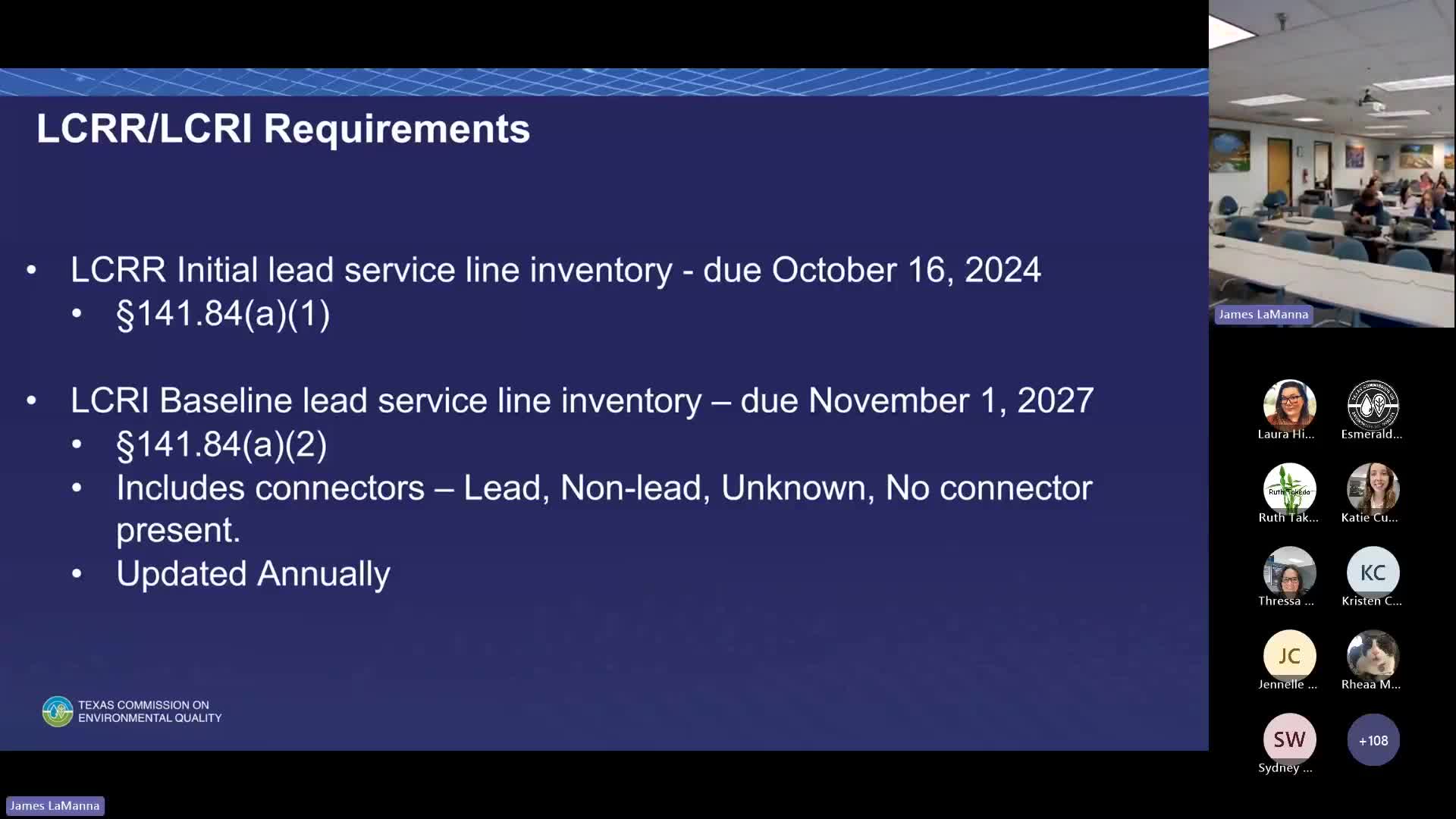Claire Cullerton expands lead testing program for schools and childcare facilities
June 03, 2025 | Commission on Environmental Quality(TCEQ), Departments and Agencies, Executive, Texas
This article was created by AI summarizing key points discussed. AI makes mistakes, so for full details and context, please refer to the video of the full meeting. Please report any errors so we can fix them. Report an error »

In a recent meeting of the Texas Commission on Environmental Quality (TCEQ), significant discussions centered around the Lead Testing in Schools and Childcare (LTSCC) program, which aims to ensure safe drinking water for children across the state. The program is set to expand its reach, offering not only lead testing but also the replacement of drinking water fountains and pitcher filters in schools and childcare facilities.
The meeting highlighted that 20% of schools will be tested for lead, with a focus on elementary schools up to eighth grade. While participation is mandatory for public schools, private institutions can opt in voluntarily. This flexibility aims to protect public health by ensuring that all children have access to safe drinking water, regardless of their school type.
Claire Cullerton, the team leader for the drinking water assessment team, emphasized the importance of the program and its resources. Schools and childcare facilities that cannot conduct their own testing can receive assistance from the LTSCC program. This support is crucial as it helps identify lead contamination in drinking water, which can have serious health implications for children.
Concerns about funding for the LTSCC program were addressed, with Cullerton reassuring attendees that there are currently no indications of reduced funding. The program has maintained support through previous administrations, reflecting a strong commitment to protecting children's health.
Additionally, the meeting discussed the potential for private schools to participate in the program. However, as it stands, the current grant structure does not allow for their inclusion unless changes are made.
The TCEQ is also working on enhancing transparency by developing GIS mapping tools that will provide information on which facilities have participated in the program and their testing results. This initiative aims to empower communities with knowledge about the safety of their drinking water.
As the LTSCC program continues to evolve, it remains a vital resource for ensuring that Texas children have access to safe drinking water, addressing a critical public health concern that resonates deeply within communities across the state.
The meeting highlighted that 20% of schools will be tested for lead, with a focus on elementary schools up to eighth grade. While participation is mandatory for public schools, private institutions can opt in voluntarily. This flexibility aims to protect public health by ensuring that all children have access to safe drinking water, regardless of their school type.
Claire Cullerton, the team leader for the drinking water assessment team, emphasized the importance of the program and its resources. Schools and childcare facilities that cannot conduct their own testing can receive assistance from the LTSCC program. This support is crucial as it helps identify lead contamination in drinking water, which can have serious health implications for children.
Concerns about funding for the LTSCC program were addressed, with Cullerton reassuring attendees that there are currently no indications of reduced funding. The program has maintained support through previous administrations, reflecting a strong commitment to protecting children's health.
Additionally, the meeting discussed the potential for private schools to participate in the program. However, as it stands, the current grant structure does not allow for their inclusion unless changes are made.
The TCEQ is also working on enhancing transparency by developing GIS mapping tools that will provide information on which facilities have participated in the program and their testing results. This initiative aims to empower communities with knowledge about the safety of their drinking water.
As the LTSCC program continues to evolve, it remains a vital resource for ensuring that Texas children have access to safe drinking water, addressing a critical public health concern that resonates deeply within communities across the state.
View full meeting
This article is based on a recent meeting—watch the full video and explore the complete transcript for deeper insights into the discussion.
View full meeting
